|
Books Should Be Free Loyal Books Free Public Domain Audiobooks & eBook Downloads |
|
|
Books Should Be Free Loyal Books Free Public Domain Audiobooks & eBook Downloads |
|
Romance Novels |
|---|
|
Book type:
Sort by:
View by:
|
By: Mary Keith Medbery Mackaye (1845-1924) | |
|---|---|
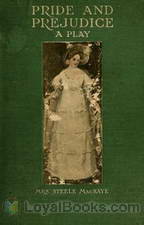 Pride and Prejudice: A Play
Pride and Prejudice: A Play
Pride and Prejudice, a comedy of manners and marriage, is the most famous of Jane Austen's novels. In this dramatic adaption by Mary Keith Medbery Macakaye some liberties are taken with the storyline and characters, but it is still a fun listen or read. Perhaps a good introduction for someone not ready to tackle the complete novel ~ and for the reader familiar with the work, a laugh can be had at the changes that were made in order to adapt it to the stage | |
By: Molly Elliot Seawell (1860-1916) | |
|---|---|
 Throckmorton
Throckmorton
This is a novel about the lives of the members of the Temple family and their connections in Tidewater, Virginia, in the Reconstruction era. The widow Judith Temple and her sister in law Jacqueline live quietly on the Temple plantation, when the widower George Throckmorton returns to Tidewater. He had joined the Union Army in the war, and led with distinction. The lives of the girls are turned upside-down.. | |
By: Stella Benson (1892-1933) | |
|---|---|
 This Is the End
This Is the End
Some books have plots that drive relentlessly toward a conclusion. Others, like "This Is The End", just meander. It is the story of a Family halfheartedly searching for a missing relation who does not want to be found, while just off-stage, World War I is raging on the continent. It is a story about ordinary people trying to live ordinary lives in extraordinary times. The things they do are less important than the ways in which they do them: often comic, occasionally tragic, but always touching and true to life. It reminds us that Poetry and Romance can be found anywhere, hidden beneath the surface of the most commonplace things. | |
By: Jesse Lynch Williams (1871-1929) | |
|---|---|
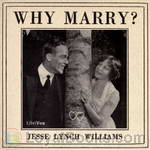 Why Marry?
Why Marry?
Why Marry? is a comedy, which "tells the truth about marriage". We find a family in the throes of proving the morality of marriage to a New Age Woman. Can the family defend marriage to this self-supporting girl? Will she be convinced that marriage is the ultimate sacredness of a relationship or will she hold to her perception that marriage is the basis of separating two lovers."Why Marry?" won the first Pulitzer Prize for Drama. | |
By: Susan Edmonstoune Ferrier | |
|---|---|
 Marriage, Volume 1
Marriage, Volume 1
“Love!–A word by superstition thought a God; by use turned to an humour; by self-will made a flattering madness.” – Alexander and Campaspe. Lady Juliana, the indulged and coddled seventeen (”And a half, papa”) year old daughter of the Earl of Cortland, is betrothed by her father to a wealthy old Duke who can give her every luxury. She instead runs away and marries her very handsome but penniless lover. Very soon, they are forced to travel to Scotland to live with his quirky family in a rundown “castle” in the barren wilderness. Can this marriage survive?(Summary by P.Cunningham) | |
By: Jessie Fothergill (1851-1891) | |
|---|---|
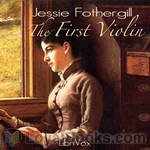 The First Violin
The First Violin
May Wedderburn is a quiet provincial girl, living in small and seemingly boring Skernford. Underneath the dull exterior, there is mystery, suspicion and fear in this little town, surrounding the austere local wealthy landowner who is very interested in marrying poor May. It looks as though she will have to marry him whether she likes it or not until an unsuspected alliance is formed between her and a respected old lady. They both escape to Germany where music and excitement await them. | |
By: David Whitelaw | |
|---|---|
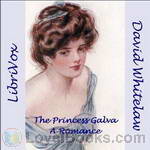 The Princess Galva
The Princess Galva
Edward Povey had been a correspondence clerk for twenty-two years when he was summarily dismissed. So how did he find himself mixed up with an orphan girl, who was really a princess, as she sought to reclaim her throne from the man who had killed her parents? Well, however it had happened, it was romantic. And after two decades in the basement office of a shipping company, he was ready for a bit of romance. (Introduction by MaryAnn) | |
By: Anonymous | |
|---|---|
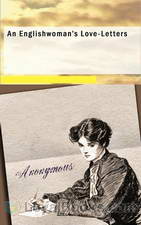 An Englishwoman's Love-Letters
An Englishwoman's Love-Letters
It need hardly be said that the woman by whom these letter were written had no thought that they would be read by anyone but the person to whom they were addressed. But a request, conveyed under circumstances which the writer herself would have regarded as all-commanding, urges that they should now be given to the world; and, so far as is possible with a due regard to the claims of privacy, what is here printed presents the letters as they were first written in their complete form and sequence. From book explaination | |
By: Joseph Hocking (1860-1937) | |
|---|---|
 Weapons of Mystery
Weapons of Mystery
Justin Blake receives an invitation from his old school-fellow Tom Temple to join him and his family for the Christmas holidays in Yorkshire. Having no other plans, he decides to go. Though he is normally much the opposite of what would be called a lady's man, he falls instantly in love with Miss Forrest, one of the guests, who had already shared his train compartment on the way. When he meets the mysterious Herod Voltaire and finds that he must protect the girl from him and his weapons of mystery, the adventure begins. | |
By: Various | |
|---|---|
 30 American Poems
30 American Poems
This is a sequel of sorts to 37 American Poems, one of my first solos. Concentration here is on late 19th to early 20th Century works by US poets. | |
By: Zane Grey (1872-1939) | |
|---|---|
 To The Last Man
To The Last Man
The story follows an ancient feud between two frontier families that is inflamed when one of the families takes up cattle rustling. The ranchers are led by Jean Isbel and, on the other side, Lee Jorth and his band of cattle rustlers. In the grip of a relentless code of loyalty to their own people, they fight the war of the Tonto Basin, desperately, doggedly, to the last man, neither side seeing the futility of it until it is too late. And in this volatile environment, young Jean finds himself hopelessly in love with a girl from whom he is separated by an impassable barrier. | |
By: Eleanor H. Porter (1868-1920) | |
|---|---|
 The Road to Understanding
The Road to Understanding
"If Burke Denby had not been given all the frosted cakes and toy shotguns he wanted at the age of ten, it might not have been so difficult to convince him at the age of twenty that he did not want to marry Helen Barnet.""Of course the inevitable happened. However near two roads may be at the start, if they diverge ever so slightly and keep straight ahead, there is bound to be in time all the world between them. In the case of Burke and Helen, their roads never started together at all: they merely crossed; and at the crossing came the wedding... | |
By: Wilkie Collins (1824-1889) | |
|---|---|
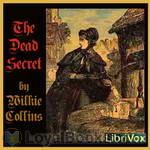 The Dead Secret
The Dead Secret
"Everything in life has a price. May be, telling a Secret has the highest. However, not telling may be worse. What will Sarah choose? will she tell the Secret which destroyed her life?" | |
By: Grace Livingston Hill (1865-1947) | |
|---|---|
 The Mystery of Mary
The Mystery of Mary
Handsome young Tryon Dunham has just returned home on the train from a business trip one evening when he's accosted by a beautiful young woman at the station. She's terrified that she's being followed and asks Dunham if she may walk with him away from the station. Her manner and appearance are those of a well-dressed and well-bred lady. However, she refuses to tell Tryon her real name or why she is running away. He feels a responsibility for her and arranges for her to accompany him to a dinner party where she delights everyone there with her exceptional musical talent at the piano... | |
By: Matthew Lewis | |
|---|---|
 The Monk: A Romance
The Monk: A Romance
Matthew Gregory Lewis's The Monk: A Romance is a story of frustrated and unrequited desire between mentor and pupil mixed with elements of the supernatural. It includes several subplots: rape, torture and incest. It is the old story of the forces of good versus the forces of evil, except that in this one evil comes out ahead. When The Monk was first published in 1795, it was received well by readers and reviewers causing a second edition to be printed the following year. But by the third year, there began a growing criticism of the book and of Lewis mostly on the basis of immorality... | |
By: James Allen (1864-1912) | |
|---|---|
 The Divine Companion
The Divine Companion
James Allen was a British philosophical writer known for his inspirational books and poetry and as a pioneer of the self-help movement.In the introduction Lily Allen writes: "It cannot be said of this book that James Allen wrote it at any particular time or in any one year, for he was engaged in it over many years and those who have eyes to see and hearts to understand will find in its pages the spiritual history of his life. It was his own wish that The Divine Companion should be the last manuscript of his to be published. 'It is the story of my soul,' he said, 'and should be read last of all my books, so that the student may understand and find my message in its pages.'" | |
By: Zane Grey (1872-1939) | |
|---|---|
 The Heritage Of The Desert
The Heritage Of The Desert
Jack Hare is a young cowboy who was rescued from sure death by an old settler by the name of August Naab. Hare learns that Naab's ranch is a dangerous place and is challenged by cattle thieves and a corrupt rancher who is after Naab's water rights. The greatest danger Hare faces though, is over Mescal, a half-Navajo shepherdess who is already promised in marriage to Naab's first-born son. Hare must stop the marriage, but can't kill the son of his benefactor, August Naab...until a gun battle with rustlers brings the two face-to-face over drawn pistols. | |
By: Anthony Trollope (1815-1882) | |
|---|---|
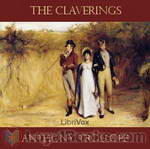 The Claverings
The Claverings
"I consider the story as a whole to he good, though I am not aware that the public ever corroborated that verdict." - the author The Claverings is the best wrought of the novels designed for The Cornhill, and as surely conceived as any book he ever wrote." - Sadleir. "It is a novel of atmosphere, and the atmosphere is of that sort very dangerous for the English novelist, the atmosphere captured so supremely well by Thackeray the green-lighted, close-scented gambling rooms, the shabby adventures of half-deserted spas, the shelving beaches of foreign watering-places, concealed accents, stolen passports, impoverished counts and impertinent ladies' maids... | |
By: Herbert George Jenkins (1876-1923) | |
|---|---|
 The Return of Alfred
The Return of Alfred
The hero of the book is at a loose end, weary and bored of his old life after returning from the Great War. After an argument with his uncle and a railway strike he finds himself lost in the county of Norfolk at ten o’clock one night. When he seeks shelter in a country home, the butler immediately recognizes him as “Mr. Alfred”, the missing son of the house. From that point onwards, our hero, who gives his name as “James Smith”, finds himself in for an exciting time.Not only does he inherit the friends of “Mr... | |
By: Myrtle Reed (1874-1911) | |
|---|---|
 A Spinner in the Sun
A Spinner in the Sun
Myrtle Reed may always be depended upon to write a story in which poetry, charm, tenderness and humor are combined into a clever and entertaining book. Her characters are delightful and she always displays a quaint humor of expression and a quiet feeling of pathos which give a touch of active realism to all her writings.In "A Spinner in the Sun" she tells an old-fashioned love story, of a veiled lady who lives in solitude and whose features her neighbors have never seen. There is a mystery at the heart of the book that throws over it the glamour of romance | |
By: William Shakespeare (1564-1616) | |
|---|---|
 Venus and Adonis
Venus and Adonis
Venus and Adonis is Shakespeare's narrative poem about the love of the goddess Venus for the mortal youth Adonis, dedicated partly to his patron, the Earl of Southampton (thought by some to be the beautiful youth to which many of the Sonnets are addressed). The poem recounts Venus' attempts to woo Adonis, their passionate coupling, and Adonis' rejection of the goddess, to which she responds with jealousy, with tragic results. This recording features three different readers performing the narration, Venus, and Adonis. | |
By: Justin McCarthy (1830-1912) | |
|---|---|
 The Riddle Ring
The Riddle Ring
This romantic mystery - or mysterious romance - tells the tale of jilted lover, Jim Conrad, who discovers an unusual gold ring while on a visit to Paris. What is the story of the ring? Why is Clelia Vine so sad? Who is the nameless 'chief'? And how is a dour English barber in a Parisian salon mixed up in all this?The novel, published in 1896, was written by Justin McCarthy, an Irish nationalist, Liberal historian, novelist and politician. (Introduction by Ruth Golding) | |
By: Richard Harding Davis (1864-1916) | |
|---|---|
 The Lost House
The Lost House
Austin Ford, the London correspondent of the New York Republic, is spending some idle time in the American Embassy chatting with the Second Secretary, when suddenly a note is brought in. This note is an appeal for help, found in the gutter in a dark alley. The writer claims to be a young girl, who is kept against her will locked up in a lunatic asylum by her uncle. Although the Second Secretary tries to convince him that there is nothing to it, the journalist is determined to follow the lead... | |
By: Charlotte Turner Smith (1749-1806) | |
|---|---|
 The Old Manor House
The Old Manor House
The proud, cruel and arrogant Mrs. Rayland never married. Therefore, "Rayland Hall", the old Manor House of the title, had to pass to their heir, Somerive, whom they never treated kindly. According to the British laws at the time, the heir must be the oldest son. But what is to be done when the second son is more worthy of it - and is more beloved by Miss Rayland herself? And must the fact that he is in love with a servant and dependent of Miss Rayland take its toll? | |
By: Eleanor H. Porter (1868-1920) | |
|---|---|
 Miss Billy Married
Miss Billy Married
At the opening to this second sequel to Miss Billy (Miss Billy, Miss Billy's Decision, Miss Billy Married), we find Bertram and Billy finally at the altar. Will wedded bliss ensue and are the patter of little feet on the horizon? Or is misunderstanding and heartache in the cards again? Find out in Miss Billy Married! | |
By: Richard Harding Davis (1864-1916) | |
|---|---|
 The Make-Believe Man
The Make-Believe Man
Adventure was what our protagonist was looking for, when he boarded the steamer "Patience" for his holiday, and when one has a man with such a vivid imagination like Joseph Forbes Kinney as a travel companion, who seems to find adventures at every turn of the road (and if not, he manufactures them), the two travellers are sure to stumble into trouble... | |
By: Justin McCarthy (1830-1912) | |
|---|---|
 Red Diamonds
Red Diamonds
In the South African wilderness, six men got together to mine for diamonds and become very rich. They agree that the wealth is to be split equally between them or their heirs after a few years and that the share of any one who died without leaving an heir or whose heir died before the time would be split between the remaining partners. Soon, all heirs are notified and wait expectantly for the first of January, on which the diamonds are to be divided between the partners. However, the diamonds are becoming increasingly blood stained, and January the first is still some time off... | |
By: Neil Munro (1863-1930) | |
|---|---|
 Doom Castle
Doom Castle
Doom Castle is the story of young Count Victor's journey to Scotland after the Jacobite Rebellion, searching for a traitor to the Jacobite cause as well as a mysterious man under the name of "Drimdarroch", whom he swore revenge. After a perilious journey, Count Victor arrives at Doom Castle as a guest of the enigmatic Baron of Doom, his two strange servitors and his beautiful daughter... (Summary by Carolin) | |
By: Miriam Michelson (1870-1942) | |
|---|---|
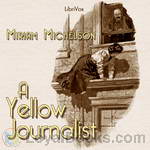 A Yellow Journalist
A Yellow Journalist
Rhoda Massey is a young, sharp reporter for a daily newspaper in San Francisco. After proving herself an astute and fearless investigator on her first big story, she spends most of her waking hours running down leads and doing (almost) anything it takes to produce headline grabbing tales and to be the first one to do so. She must compete with her male colleagues where she works but also with those from other newspapers. Rhoda discovers it useful to be pretty and small in stature (great for eavesdropping from tight and unusual locations) but it's her shrewd mind and her nose for news that propel her to pursue stories in dangerous places and, sometimes, from dangerous characters... | |
By: Thomas Hardy (1840-1928) | |
|---|---|
 The Well-Beloved
The Well-Beloved
'The Well-Beloved' tells the story of Jocelyn Pierston and his love for three generations of women - the grandmother, her daughter and grand-daughter over a period of forty years. Pierston is seeking for perfection in his choice of lover and in doing so lets opportunities for happiness pass him by. However, at the end of his life, he finds some kind of contentment in compromise. | |
By: Dorothy Canfield Fisher (1879-1958) | |
|---|---|
 The Bent Twig
The Bent Twig
Semi-autobiographical series of incidents in the life of an intellectual American family in the late 19th - early 20th Century as seen by favored daughter, Sylvia Marshall. Her father is an economics professor in a Midwestern state university and she is following in his inquisitive footsteps. Canfield writes this in a matter-of-fact manner with Tarkingtonesque good humor. | |
By: George Sand (1804-1876) | |
|---|---|
 Indiana
Indiana
This is George Sand's first novel. Her real name was Amantine (or Amandine) Lucile Dupin, and she later became baroness Dudevant. As an aristocratic woman living in 19th century France, she chose her first novel to be, above all, a realistic work. Indiana is trapped since the age of 16 in a loveless marriage with a rich, much older, man. Her only real friend is her cousin, sir Ralph, who, sometimes, just does things which are- logically- the best for her but- mentally- the worsed he could do. She tries to find means of escape. But would she be able to recreate her own reality? Can a woman find true love while trying to maintain her identity and independence in a man's world?" | |
By: Florence Morse Kingsley (1859-1937) | |
|---|---|
 And So They Were Married
And So They Were Married
This is the story of Elizabeth North a young woman who becomes engaged and with the aid of a social climbing friend begins to plan her wedding beyond what she can afford. Her friend Evelyn Tripp, convinces Elizabeth that she “simply can’t afford” not to live a fashionable and expensive lifestyle. However her husband and her grandma help her to see sense and pull herself out of the debt she has got herself into. | |
By: Henry Rider Haggard (1856-1925) | |
|---|---|
 Pearl Maiden
Pearl Maiden
This is the story of Miriam, an orphan Christian woman living in Rome in the first century. She falls in love with a Roman officer, but knows that her Jewish childhood playmate loves her too and will do anything in order to get her love in return. | |
By: Booth Tarkington (1869-1946) | |
|---|---|
 Monsieur Beaucaire
Monsieur Beaucaire
A madcap Frenchman posing as an ambassador's barber blackmails a dishonest duke to introduce him as a nobleman to a wealthy belle of Bath. Since the duke himself hopes to mend his fortunes by wedding this very woman, he attempts to murder Beaucaire, and failing that to discredit him. To test the lady's mettle, Beaucaire allows his deception to be exposed--up to a point--and there we must draw the curtain to preserve the surprise ending. ( | |
By: Eliza Haywood (1693-1756) | |
|---|---|
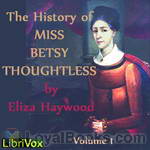 The History of Miss Betsy Thoughtless, Volume 1
The History of Miss Betsy Thoughtless, Volume 1
The flirtations of a rich young maiden, Miss Betsy Thoughtless with several suitors, as she alienates the right man by refusing to take the issue of marriage seriously. Because of this her guardian commits her to marriage to the wrong man, a situation over which she has little control. As the heroine describes her fate, this text exposes the institution of marriage, the powerlessness of women and the double standards held during that time.(Introduction by Joyce Martin) | |
By: Sheikh Nefzaoui | |
|---|---|
 The Perfumed Garden
The Perfumed Garden
A fifteenth-century Arabic sex manual and work of erotic literature. The book presents opinions on what qualities men and women should have to be attractive, gives advice on sexual technique, warnings about sexual health, and recipes to remedy sexual maladies. It gives lists of names for the penis and vagina, has a section on the interpretation of dreams, and briefly describes sex among animals. Interspersed with these there are a number of stories which are intended to give context and amusement. | |
By: Florence Irwin (1869-19??) | |
|---|---|
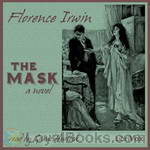 The Mask
The Mask
The mask is the one which we all wear, even though unconsciously, to hide our thoughts and feelings. Alison Terry wore one, though she had never realized it until she faced a crisis in her life. Alison, a girl of sympathetic mood and action whose keen intelligence is overbalanced by the inexperience of innocence and a sheltered upbringing, goes to New York with her erratic husband, Phil Howland. She passes through various stages of disillusionment inevitably resulting from cheap boarding-house life,... | |
By: Harold Bindloss (1866-1945) | |
|---|---|
 Northwest!
Northwest!
Northwest! takes place in western Canada, primarily western Alberta and British Columbia. The story revolves around Jimmy not being sure whether or not he shot and killed a Northwest Mounted while he and some friends were out hunting one day. Not exactly a bushman, he needs to head northwest to avoid capture by the officials who are out to find him and bring him to trial. At least that's what he suspects. Survival in the wilderness for one who was raised in British class proves to be a daunting experience, and we learn of the trials he is to be put through while he is on the lam. | |
By: A. S. M. Hutchinson (1879-1971) | |
|---|---|
 If Winter Comes
If Winter Comes
If Winter Comes, was in many aspects ahead of its time, dealing with an unhappy marriage, eventual divorce, and an unwed mother who commits suicide. According to the New York Times, "If Winter Comes" was the best-selling book in the United States for all of 1922. | |
By: Francis William Bourdillon (1844-1912) | |
|---|---|
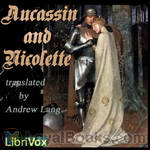 Aucassin and Nicolette.
Aucassin and Nicolette.
Aucassin and Nicolette is a medieval romance written in a combination of prose and verse called a “song-story.” Created probably in the early 13th century by an unknown French author, the work deals with the love between the son of a count and a Saracen slave girl who has been converted to Christianity and adopted by a viscount. Since Aucassin’s father is strongly opposed to their marriage, the two lovers must endure imprisonment, flight, separation in foreign lands, and many other ordeals before their ardent love and fierce determination finally bring them back together... | |
By: L. G. Moberly (1861-1931) | |
|---|---|
 Christina
Christina
Christina is a story of two people: Christina, a strong young and poor woman, who searches for work and finds more than she bargained for, and Rupert, a middle class man, who is pressured to marry and settle down. These two people meet frequently and start to confide in each other. But can they really help one another put their wounds from the past to rest and start a new life? And will their new life include one another? Lucy Gertrude Moberly was an English popular novelist whose wonderful writing style deserves attention. | |
By: Ossip Schubin (1854-1934) | |
|---|---|
 Our Own Set
Our Own Set
The Austrian nobility in Rome forms a very close circle, into which only those of high rank and wealth are admitted. They managed to get along with Cecil Sterzl, who, although not one of their own, is regarded as quite an amiable man. However, when he brings his younger sister Zinka into that circle, she is received very coldly at first, if at all. And when, with her fresh and unaffected manners, she wins one heart after another, especially that of the handsome Count Sempaly, she also excites jealousy and contempt in many members of that "set"... | |
By: Alexander Pushkin (1799-1837) | |
|---|---|
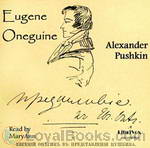 Eugene Onéguine
Eugene Onéguine
Eugene Onéguine is a classic of Russian literature, and its eponymous protagonist has served as the model for a number of Russian literary heroes (so-called superfluous men). It was published in serial form between 1825 and 1832. The first complete edition was published in 1833, and the currently accepted version is based on the 1837 publication.Almost the entire work is made up of 389 stanzas of iambic tetrameter with the unusual rhyme scheme "AbAbCCddEffEgg", where the uppercase letters represent feminine rhymes while the lowercase letters represent masculine rhymes... | |
By: Myrtle Reed (1874-1911) | |
|---|---|
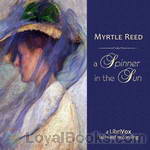 A Spinner in the Sun (dramatic reading)
A Spinner in the Sun (dramatic reading)
Myrtle Reed may always be depended upon to write a story in which poetry, charm, tenderness and humor are combined into a clever and entertaining book. Her characters are delightful and she always displays a quaint humor of expression and a quiet feeling of pathos which give a touch of active realism to all her writings. In "A Spinner in the Sun" she tells an old-fashioned love story, of a veiled lady who lives in solitude and whose features her neighbors have never seen. There is a mystery at the heart of the book that throws over it the glamour of romance. | |
By: Amanda McKittrick Ros (1860-1939) | |
|---|---|
 Irene Iddesleigh
Irene Iddesleigh
Amanda McKittrick Ros, a Northern Irish writer, did for the novel what William McGonagall did for poetry and Florence Foster Jenkins for the coloratura voice. She published a number of novels (all at her own expense) and in addition to being a novelist was a poet, her best known being 'Visiting Westminster Abbey' which beginsHoly Moses!Take a look!Flesh decayed in every nook!Some rare bits of brain lie here,Mortal loads of beef and beer.C.S. Lewis, J.R. Tolkien and The Inklings were admirers and held competitions to see who could read her work for the longest time whist keeping a straight face... | |
By: William John Locke (1863-1930) | |
|---|---|
 The Fortunate Youth
The Fortunate Youth
Paul is a poor boy who grew up in London, in the household of his mother and stepfather. His journey to greatness is the subject of our story. But his desired success comes at a very high price. | |
By: George Eggleston and Dolores Marbourg | |
|---|---|
 Juggernaut: A Veiled Record
Juggernaut: A Veiled Record
Edgar Braine was consistently successful at all he set out to accomplish. He went through life with goals and worked diligently and with ethical purity in reaching those goals, from becoming editor of the local newspaper on up to his political aspirations. That was how his mother, in her waning years, had advised him to reach his goals, and Edgar was determined to honor her advice. There was one caveat in his mothers advice however, and it is for Edgar to determine exactly what she meant by it. Is success measured by the interactions between business, politics, and marriage? | |
By: Charles Major (1856-1913) | |
|---|---|
 When Knighthood Was in Flower
When Knighthood Was in Flower
Set during the Tudor period of English history, When Knighthood Was in Flower tells the tribulations of Mary Tudor, a younger sister of Henry VIII of England who has fallen in love with a commoner. However, for political reasons, King Henry has arranged for her to wed King Louis XII of France and demands his sister put the House of Tudor first, threatening, "You will marry France and I will give you a wedding present – Charles Brandon's head!" | |
By: Alessandro Manzoni (1785-1873) | |
|---|---|
 Betrothed (I Promessi Sposi)
Betrothed (I Promessi Sposi)
The Betrothed (I Promessi Sposi) presents a kaleidoscope of individual stories, which are all tied together by the story of Lucia and Renzo, two young persons of humble origin that are deeply in love with one another. However, despite their great attachment, they are prevented from marrying by the cruel Don Rodrigo, who has himself cast an eye on the beautiful and pious Lucia. Don Rodrigo menaces the priest who was to perform the wedding ceremony, who then refuses to do his duty. Thus threatened and prevented from being married, the couple is separated, and the narration follows each of them on their struggle to unite again... | |
By: John Jeffery Farnol (1878-1952) | |
|---|---|
 Broad Highway
Broad Highway
Our hero, Peter Vibart, an Oxford graduate with no means of support but for 10 guineas he has inherited, sets out on a walking tour of the Kent countryside. Along the way, he meets many quaint and adoring characters as well as a few ne’er-do-wells, meets with several disasters and triumphs, and eventually he meets "The Woman," who leads him to even more disasters and triumphs. (Introduction by John Lieder)Proof-listened by Dawn Larsen and BainbridgeCatherine. | |
By: George Eliot (1819-1880) | |
|---|---|
 Felix Holt, The Radical
Felix Holt, The Radical
"Harold Transome is a landowner who goes against his family's political tradition (much to his mother's distress), while Felix Holt is a sincere radical. The setting of the book, the 1832 parliament election, is used to discuss the social problems of that time. A secondary plot involves Esther Lyon, the stepdaughter of a minister who is the real heiress to the Transome estate, with whom both Harold Transome and Felix Holt fall in love. Esther loves poor Felix Holt, but would she choose a comfortable life with Harold Transome?" | |
By: George Gascoigne (1535-1577) | |
|---|---|
 Adventures of Master F.J.
Adventures of Master F.J.
This story presents through letters, poems and third-person commentary the love affair between a young man named Freeman Jones and a married woman named Elinor, lady of the castle he is visiting in Scotland. Events in the affair are traced from initial attraction through seduction to (somewhat) graphic sexual encounters and their aftermath. (Allegedly based on a real-life scandal, the author, in re-issuing his story two years later, transplanted the action to Italy, renaming the principals Fernando Jeronimi and Leonora.) | |
By: Mary Elizabeth Braddon (1835-1915) | |
|---|---|
 Vixen
Vixen
This is an exquisite and heartbreaking love story. Violet Tempest and Roderick Vawdrey, otherwise known to each other as Vixen and Rorie, are childhood sweethearts. However, Rorie's family wants him to marry elsewhere. You may think it is the old story all over again, but nothing in this novel is what it seems. It is far too realistic for that. Many books talk about falling in love. This book starts after that stage, and speaks about the harder stage of a relationship: loving earnestly but understanding that love - even in the truest and purest sense - is not everything in life... | |
By: Rosa Campbell Praed (1852-1935) | |
|---|---|
 Rebel Rose
Rebel Rose
The Rebel Rose is the story of Mary Stuart Beaton, a descendant of Mary Queen of Scots who has come to London in the hope of having her family claims legitimized. The Pretendress -- as she is called, finds herself caught up in the devices of her own personal guardians as well as a scheming London society woman scorned by a powerful member of Parliament who has become an admirer of the Princess. Apart from the claims of royalty, Mary Beaton knows where her worth is found and she proves to be a formidable opponent for all those scheming for and against her. | |
By: Benjamin Disraeli (1804-1881) | |
|---|---|
 Sybil, or the Two Nations
Sybil, or the Two Nations
Sybil is one of the most prominent political novels of the mid-nineteenth century, taking as its subject the "condition of England" question. That phrase was first used by Thomas Carlyle in an essay of 1839 on Chartism, a working-class protest movement that plays a prominent role in this novel. The two nations are the rich and the poor, and the increasing gulf between them, and their condition also inspired such writers as Charles Dickens and Mrs. Gaskell, among others (one of whom, Friederich Engels, was the disciple of Karl Marx, and in his The Condition of the Working Class in England in 1844 described the appalling effects of the industrial revolution a year before Sybil appeared)... | |
By: Arthur W. Marchmont (1852-1923) | |
|---|---|
 Dash for a Throne
Dash for a Throne
The young Count von Rudloff got himself into so much trouble with the Imperial Family in Berlin, that he sees no other way out of it than to fake his own death. Stumbling through different identities, he finally assumes - quite against his will - the identity of the Prince von Gramberg. At Gramberg Castle, he finds a web of intrigue, which threatens the safety of the young and beautiful Countess Minna. The Count von Rudloff decides to save the girl, but the intrigue is more complicated than it first appeared, and there are old enemies who are still waiting for their revenge... | |
By: George Bernard Shaw (1856-1950) | |
|---|---|
 Widowers' Houses
Widowers' Houses
This is one of three plays Shaw published as Plays Unpleasant in 1898; they were termed "unpleasant" because they were intended, not to entertain their audiences—as traditional Victorian theatre was expected to—but to raise awareness of social problems and to censure exploitation of the laboring class by the unproductive rich. In this play, Dr. Harry Trench becomes disillusioned when he discovers how his fiancee's father, Mr. Sartorius, makes his money. However, it is soon revealed that Trench's own income is far from untainted. | |
By: Ann Radcliffe (1764-1823) | |
|---|---|
 EDWY: A Poem, in Three Parts
EDWY: A Poem, in Three Parts
In Edwy, Ann Radcliffe gives us a delightful piece of poetic moonshine, whose eponymous hero seeks assistance from the world of faerie in order to spy on his girlfriend, Aura, and see if she really loves him. He does this by venturing unseen into Windsor Forest at night to trap the love-fay, Eda, who, once spellbound, must reveal all and let him remotely view Aura's activities by means of a magic mirror cut from crystal. In addition to this early form of cyberstalking, Edwy, on his night-journey into the forest gets to witness a royal procession of the Fairie Queen, followed by midnight revels of elves and spirits... | |
By: Charlotte Lennox (1730-1804) | |
|---|---|
 Henrietta Volume 1 (dramatic reading)
Henrietta Volume 1 (dramatic reading)
Henrietta is a strong willed young lady who will not give in to her aunt and marry the suitors she proposes. She runs away and adventure ensues. However she meets one young man who she is quite taken with but he does not share all about himself and Henrietta finds herself in some tricky situations. | |
By: Harry Clifford Fulton | |
|---|---|
 Jean Valjean; or, The Shadow of the Law
Jean Valjean; or, The Shadow of the Law
A late 19th-century stage adaptation of Victor Hugo's Les Miserables in English, The Shadow of the Law dramatizes the struggles of Hugo's legendary characters: Jean Valjean, the former convict; his relentless pursuer, Javert; Fantine, the tragic mother; her daughter Cosette; the greedy Thenardiers; the doomed revolutionaries. | |
By: William Shakespeare (1554-1616) | |
|---|---|
 Much Ado About Nothing (version 2)
Much Ado About Nothing (version 2)
Much Ado About Nothing is generally considered one of Shakespeare’s best comedies, because it combines elements of robust hilarity with more serious meditations on honor, shame, and court politics. Much Ado About Nothing chronicles two pairs of lovers: Benedick and Beatrice (the main couple), and Claudio and Hero (the secondary couple). Benedick and Beatrice are engaged in a very "merry war"; they are both very witty and proclaim their disdain of love. In contrast, Claudio and Hero are sweet young people who are rendered practically speechless by their love for one another... | |
By: Edward Phillips Oppenheim (1866-1946) | |
|---|---|
 Yellow House
Yellow House
Vicar and his two daughters move to a small, quiet country village and soon learn that their neighbor in the yellow house holds secrets that will change everything they thought to be real in their lives. | |
By: Oliver Goldsmith (1730-1774) | |
|---|---|
 Good-Natured Man
Good-Natured Man
By the playwright of the more popular She Stoops to Conquer, The Good-Natured Man is the comedic story of misguided philanthropy, mistaken identity, and secret romance. Will Honeywell, The Good-Natured Man, see through the lies and trickery surrounding his generosity? Will Leontine and Olivia's true relationship be found out? And just what is that Lofty guy up to...? | |
By: Louis Couperus (1863-1923) | |
|---|---|
 Inevitable
Inevitable
23 year old Cornélie de Retz is a Dutch Divorcee who goes to Italy to start a new life and most part of the novel is filled with the details of romantic conversations, emotions and finally the Inevitable follows. Find out what the Inevitable is and immerse yourself in the explicit and delicate details of the author as he takes you round the world of Cornélie de Retz. | |
By: Sybil G. Brinton (1874-1928) | |
|---|---|
 Old Friends And New Fancies
Old Friends And New Fancies
Generally acknowledged to be the first sequel to the work of Jane Austen, Old Friends and New Fancies incorporates characters from each of Austen's six major novels into one unified story, as well as those of Brinton's own invention. The novel generally focuses on various parings of lovers and the challenges that their unions create. | |
By: Earl Derr Biggers (1884-1933) | |
|---|---|
 Love Insurance
Love Insurance
A young man came to Lloyds of London. He knew they took out policies on unusual risks... And what he wanted was love insurance. What follows is a comic novel, by the creator of the Chinese detective - Charlie Chan! | |
By: George Bernard Shaw (1856-1950) | |
|---|---|
 Love Among the Artists
Love Among the Artists
Love Among the Artists was published in the United States in 1900 and in England in 1914, but it was written in 1881. In the ambience of chit-chat and frivolity among members of Victorian polite society a youthful Shaw describes his views on the arts, romantic love and the practicalities of matrimony. Dilettantes, he thinks, can love and settle down to marriage, but artists with real genius are too consumed by their work to fit that pattern. The dominant figure in the novel is Owen Jack, a musical genius, somewhat mad and quite bereft of social graces... | |
By: Edmund John Eyre (1767-1816) | |
|---|---|
 Lady of the Lake
Lady of the Lake
At the request of Mr. Siddons, Manager and Patentee of the Theatre Royal, Edinburgh, the following Performance was composed. I am very sensible that Mr. Scott’s Poem of “The Lady of the Lake” afforded material for a much superior Drama than the one here presented to the public; but as Mr. Siddons, in all his correspondence with me on the subject, urged expedition, I was more attentive to the interest of a Friend than to the fame of an Author; and the whole piece was arranged, written, and copied in the short space of ten days... | |
By: Florence Roma Muir Wilson (1891-1930) | |
|---|---|
 Death of Society: A Novel of Tomorrow
Death of Society: A Novel of Tomorrow
A weary survivor of the Great War, Major Rane Smith wanders in a great ennui amidst the mystical beauties of the fjords of Norway after the War, seeking a spiritual renewal. Deep in the forest he stumbles fatefully upon the strange, almost elvish home of Karl Ingman, an iconoclastic old Ibsen scholar. There Major Smith meets Ingman's two beautiful young daughters and his eldritch wife Rosa, entering into long days of profound dialogue with each member of the family. A rare and exquisite gem of... | |
By: Lewis Theobald (1688-1744) | |
|---|---|
 Double Falsehood; or, The Distrest Lovers
Double Falsehood; or, The Distrest Lovers
This play is based on story told in Cervantes' Don Quixote, and some believe it is a reconstruction of a lost play by Shakespeare and Fletcher. Duke Angelo and his son Roderick are concerned about the activities of the duke's younger son, Henriquez. They enlist his friend, Julio, as a spy. Before Julio left for the court, he foolishly asks Henriquez to secure his marriage to Leonora. | |
By: Lucy Maud Montgomery (1874-1942) | |
|---|---|
 Kilmeny of the Orchard (version 2 Dramatic Reading)
Kilmeny of the Orchard (version 2 Dramatic Reading)
A short and sweet romance by the author of "Anne of Green Gables", Kilmeny of the Orchard is a story about a schoolteacher (Eric) who goes to Prince Edward Island and meets a beautiful but mysterious girl. Who is she? Why doesn't she speak? Why don't her guardians ever let her out? As Eric explores the answers to these questions, he slowly but surely falls in love with the mysterious girl. Will she ever speak to him? | |
By: Mrs. E. Burke Collins (1848-1902) | |
|---|---|
 Her Dark Inheritance
Her Dark Inheritance
A story of obsessive love and desperation that hid many secrets. This cliffhanger will keep you guessing until the very end. | |
By: Edith Nesbit (1858-1924) | |
|---|---|
 Lark
Lark
"The Lark" has all the charm and freshness which have made Miss Nesbit's former novels so justly popular, and yet the story ts entirely new and original. Two girls, Jane and Lucilla, are led by Jane's guardian to entertain high hopes. The fortune, however, which Jane was to have inherited, has been lost by unlucky speculations, and the two girls have to set about earning their own livings. They experience many adventures and ups and downs of fortune before they meet with the two men who ensure their happiness and prosperity. A delightful story, well worth reading. | |
By: Richard Doddridge Blackmore (1825-1900) | |
|---|---|
 Cradock Nowell Vol. 1
Cradock Nowell Vol. 1
Cradock Nowell: a Tale of the New Forest is a three-volume novel by R. D. Blackmore published in 1866. Set in the New Forest and in London, it follows the fortunes of Cradock Nowell who is thrown out of his family home by his father following the suspicious death of Cradock's twin brother Clayton. It was Blackmore's second novel, and the novel he wrote prior to his most famous work Lorna Doone. ( Wikipedia) *Warning: Some listeners may be offended by some of the language. Words that were considered acceptable in the nineteenth century are not always politically correct today. | |
By: S. Baring-Gould (1834-1924) | |
|---|---|
 Pennycomequicks
Pennycomequicks
The Pennycomequicks is the charming and witty story of a dysfunctional English family in the late 19th century, scattered to the winds, scarred and battered by human and Divine tragedy, struggling for sustenance of the material and / or immaterial kind. | |
By: Richard Doddridge Blackmore (1825-1900) | |
|---|---|
 Cradock Nowell Vol. 3
Cradock Nowell Vol. 3
Cradock Nowell: a Tale of the New Forest is a three-volume novel by R. D. Blackmore published in 1866. Set in the New Forest and in London, it follows the fortunes of Cradock Nowell who, at the end of Volume 1, is thrown out of his family home and disowned by his father following the suspicious death of Cradock's twin brother Clayton, their father's favorite. In Volume 2, the story picks up with those left behind at Nowelhurst and the question of who is now heir apparent to the Nowell fortune. Meanwhile, Cradock discovers life independent of the Nowell name and fortune is not easy... | |
By: Sir Philip Sidney (1554-1586) | |
|---|---|
 Countess of Pembroke's Arcadia
Countess of Pembroke's Arcadia
Arcadia is a prose work by Sir Philip Sidney, a classic of the Renaissance pastoral and a work of high romance, a fleeting vision of a lost world of gallantry and adventure, representing an escape from the realities of politics in the Elizabethan court. It contributes to the ongoing legend of Sidney as the perfect Renaissance man, "soldier, scholar, horseman he/And all he did done perfectly". | |
By: Albert Bigelow Paine (1861-1937) | |
|---|---|
 Lucky Piece: A Story of the North Woods
Lucky Piece: A Story of the North Woods
While riding a stage back to the city late in the summer, a youngster had no money to spend, and so gives his lucky piece as payment to a young girl selling berries by the roadside. As time passes, in the Adirondack mountains of northern New York state, a tale unfolds involving two young women, two young men, and a bevy of characters the likes of which lend to a series of events which make up a fascinating story. Constance was one not to be controlled, she was a free spirit, as in fairy tales, wont to follow the moment rather than ideas presented to her by others... | |
By: Margaret O. Oliphant (1828-1897) | |
|---|---|
 Miss Marjoribanks
Miss Marjoribanks
One of the so-called "Chronicles of Carlingford", of which there were two short stories and five novels written from 1861 to 1876 by Margaret Oliphant Wilson Oliphant. The Chronicles originally appeared in the famous Blackwood's Magazine. Mrs. Oliphant wrote prolifically in her career, and many of her main characters were independent, resourceful women. In fact, Miss Marjoribanks has been occasionally cited as the successor to Jane Austen's Emma, albeit Miss Marjoribanks is more focused, less pliable and a decidedly more strategic thinker than dear Emma. | |
By: Eliza Haywood (c.1693-1756) | |
|---|---|
 History of Miss Betsy Thoughtless, Vol. 2
History of Miss Betsy Thoughtless, Vol. 2
This has been said to be the first female development novel in English. Betsy leaves her emotionally and financially abusive husband Munden and experiences independence before she decides to marry again. The novel has marital advice told via quips from Lady Trusty. | |
By: Stendhal (1783-1842) | |
|---|---|
 Chartreuse of Parma (The Charterhouse of Parma)
Chartreuse of Parma (The Charterhouse of Parma)
This book is more often called The Charterhouse of Parma in English, because "Charterhouse" is the English word for a Carthusian monastery, whereas "Chartreuse" is the French word. The book tells the life of a Lombard nobleman, born soon after the appearance of Napoleon's army in Italy. He has many adventures in love, war, politics, and the Church. The politics and the Church part of his life result from his doting aunt's becoming the Prime Minister's mistress, and the power behind the throne, in the Duchy of Parma... | |
By: Harry Stillwell Edwards (1855-1938) | |
|---|---|
 Just Sweethearts; A Christmas Love Story
Just Sweethearts; A Christmas Love Story
“Clearly he was one of those rare beings who can radiate energy standing still and convey the impression of impetuous force without motion, a trick of the eyes, a refusal to sag…. King saw her first as she started across Cherry Street from the far corner, a slender figure moving with grace and assurance through the dangerous procession of motor cars, still handled in the South as new toys,…” What is the secret that may keep these two, meant for each other, apart? Book quote and David Wales | |
By: Myrtle Reed (1874-1911) | |
|---|---|
 Shadow of Victory
Shadow of Victory
This is another work by the author Myrtle Reed who is also the author of "The Spinster Book" and "Old Rose and Silver" and was a best-seller during 1903. | |
By: John Dryden (1631-1700) | |
|---|---|
 Tempest
Tempest
John Dryden and William D'Avenant's Restoration adaptation of Shakespeare's The Tempest preserves the main plot and characters of the original. Prospero, the former Duke of Milan, lives on an isolated island with his daughter Miranda, and plans to take revenge on his brother Antonio, who usurped his throne. He is aided by his servant, the airy sprite Ariel, and is hated by his other servant, the monster Caliban. Dryden and D'Avenant added in a number of characters: Dorinda, Prospero's other daughter, Hippolito, a young man who has never seen a woman, Sycorax, Caliban's sister, and more spirits and comic mariners... | |
By: Mary Heaton Vorse (1874-1966) | |
|---|---|
 I've Come to Stay: A Love Comedy of Bohemia
I've Come to Stay: A Love Comedy of Bohemia
An iconoclast in many fields herself, Mary Heaton Vorse was fascinated with Bohemia, the colorful unboundaried land of poets and artists and philosophers, a place whose denizens lived by their own rules without regard for the conventions of bourgeois Society. In this comic little romance, she explores the most famous corner of American Bohemia, New York's Greenwich Village, poking fun with gentle irony at its pretensions and its passions. | |
By: Samuel Hopkins Adams (1871-1958) | |
|---|---|
 Wanted: A Husband
Wanted: A Husband
This serious, yet witty and hilarious, romantic comedy by Samuel Hopkins Adams is a must read/listen! From the very beginning it intrigues you with the troubles and feminine woes of young Miss Darcy Cole. Being a dowdy, unkempt fledgling lady, she finds herself in a mirthful fix after telling a whopper to her room-mates in order to save face from her severely lacking personal life. Resentful and jealous of most all other women, and contemplating suicide, she turns to actress Gloria Greene for guidance on how to become more attractive... | |
By: Dante Alighieri (1265-1321) | |
|---|---|
 New Life (La vita nuova)
New Life (La vita nuova)
One of Dante's earliest works, La vita nuova or La vita nova (The New Life) is in a prosimetrum style, a combination of prose and verse, and tells the story of his youthful love for Beatrice. The prose creates the illusion of narrative continuity between the poems; it is Dante's way of reconstructing himself and his art in terms of his evolving sense of the limitations of courtly love (the system of ritualized love and art that Dante and his poet-friends inherited from the Provençal poets, the Sicilian poets of the court of Frederick II, and the Tuscan poets before them)... | |
By: Stéphanie-Félicité de Genlis (1746-1830) | |
|---|---|
 Beauty and the Monster
Beauty and the Monster
A French theatrical adaptation of the famous fairy tale, The Beauty and the Monster is a drama of three characters - Beauty (Sabina), the Beast (Phanor) and Beauty's best friend, Phedima (the third wheel). | |
By: E.D.E.N. Southworth (1819-1899) | |
|---|---|
 Her Mother's Secret
Her Mother's Secret
What kind of secret could a mother be keeping that would keep long time lovers apart, and force her eldest daughter into a hasty marriage? Young Odalite and her cousin Leonidas have lived the past three years apart, with Leonidas at sea, and were planning on marrying when he came back. An old acquaintance turns up who knows something about Odalite’s mother’s past, and holds that secret over her, threatening dishonor to her and her family, unless she gives him what he wants. Will true love win the day? ( Bridget Gaige) | |
By: George Gibbs (1870-1942) | |
|---|---|
 Golden Bough
Golden Bough
The eyes of the Légionnaire, now grown accustomed to the glow of the light, made sure that the figure had not moved, nor was aware of his silent and furtive approach. Two plans of action suggested themselves, one to move behind the foliage to the right and intercept the monk with the lantern should he attempt to flee toward the lights of the house nearby, the other to risk all in a frank statement, a plea for charity and asylum. (A selection from Chapter 1. ) | |
By: Eliza Haywood | |
|---|---|
 History of Miss Betsy Thoughtless, Vol. 3
History of Miss Betsy Thoughtless, Vol. 3
Betsy Thoughtless is about marriage, rather than dealing with courtship and thus differs from the type of domestic writing that would develop in the 19th century such as Charlotte Brontë’s Jane Eyre. Rather than attracting a partner well, Betsy Thoughtless focuses on marrying well and Betsy learns that giving way to the role of women in marriage can sometimes be fulfilling. - Summary by Michele Eaton | |
By: Charles Monroe Sheldon (1857-1946) | |
|---|---|
 His Brother's Keeper
His Brother's Keeper
Stuart Duncan arrives home from college to find the workers in his father's mine on the brink of a strike. Leading the strike is Stuart's boyhood friend, Eric Vassal. Will they be estranged by the opposing forces? Or can they learn to work together as Stuart learns the true meaning of being His Brother's Keeper? | |
By: Gertrude Atherton (1857-1948) | |
|---|---|
 Travelling Thirds
Travelling Thirds
The semi-invalid Mrs. Moulton and her long-suffering husband are touring Europe with their two adult daughters, Jane and Lydia. They have firm ideas of what is proper and decorous. Mr. Moulton's young relative, Catalina, does not fit this ideal. Her dress is too short. She mixes with the natives. She wants to visit Spain... not, in itself, a problem; except she proposes to travel in a third class compartment on the train! Funds will not stretch to any other class, and if the Moultons refuse to accompany her, she proposes to walk! What will become of them all? Surely only doom, disaster and the loss of reputation lie ahead. - Summary by Lynne Thompson | |
By: Guy de Maupassant (1850-1893) | |
|---|---|
 Woman's Life
Woman's Life
Having spent her girlhood at a convent getting a good education, Jeanne has just returned home and is a happy young woman full of hope and excitement, and eager to experience life and love! But is she ready? The facts of life were not a part of the convent’s curriculum and dear Mother and Father are unable to broach sensitive topics, so Jeanne must learn life’s lessons the hard way. From the shock and dismay of the wedding night, to childbirth, to infidelity, to religion, there is a lot of learning to be done. - Summary by Lisa Reichert | |
By: Mrs. Henry de la Pasture (1866-1945) | |
|---|---|
 Lonely Lady of Grosvenor Square
Lonely Lady of Grosvenor Square
Elizabeth de la Pasture, the author of this work, is the mother of the more well known E. M. Delafield- author of Diary Of A Provincial Lady. Jeanne Marney, a country girl, comes to London to care for her ailing aunt. She is lonely and unhappy, yet unable to rebel against the many limitations put upon an upper class woman in turn-of-the-century London. Then she becomes an heiress... Would this be a blessing or a curse? This book has been made into a silent film in 1922. This book would be of interest to fans of Jane Austen, Frances Hodgson Burnet, Henry James, and E. M. Delafield. - Summary by Stav Nisser. | |
By: Mary Elizabeth Braddon (1835-1915) | |
|---|---|
 Rough Justice
Rough Justice
Who murdered Lisa Rainer? Is it her former lover who went to seek fortune in Africa and fell in love with another on the way back? Were there any blood motives? Detective John Thorne would have to discover. Inspired by a true story, this novel is a page turner. Yet this is not only a detective novel. It deals with class, gender, propriety and family. - Summary by Stav Nisser | |
By: Victor Hugo (1802-1885) | |
|---|---|
 Hans of Iceland
Hans of Iceland
Hans of Iceland was written in 1821 and is the very first novel written by young Victor, years before he became the great Hugo. It has all the ingredients of a gothic novel: dreadful murders by the hand of a human monster, a young hero in love with the destitute heroine, royal court-intrigues and rebellious uprising, all set in dungeons, dark towers and the untamed nature of Norway.This audio-book has been recorded as Dramatic Reading with all the voices performed by one single reader, including laughs, sobs, groans, occasional screams and a lot of growls. I hope you will enjoy listening to this adventurous journey just as much as I enjoyed recording it. - Summary by Sonia | |
By: George Gibbs (1870-1942) | |
|---|---|
 Love of Monsieur
Love of Monsieur
A charming rogue, a stolen birthright, unrequited love, mutiny on the high seas, with a backdrop of 17th century England and the Spanish Main, make for another historical romance from George Gibbs. - Summary by Donald Cummings | |
By: Eliza Haywood | |
|---|---|
 History of Miss Betsy Thoughtless, Vol. 4
History of Miss Betsy Thoughtless, Vol. 4
Betsy Thoughtless is about an intelligent and strong-willed woman who marries under pressure from the society in which she lives. Betsy learns that sometimes giving way to the role of women within a marriage can at times be fulfilling. This is the fourth and final volume in this series. Does she get her man you will have to listen and find out. | |